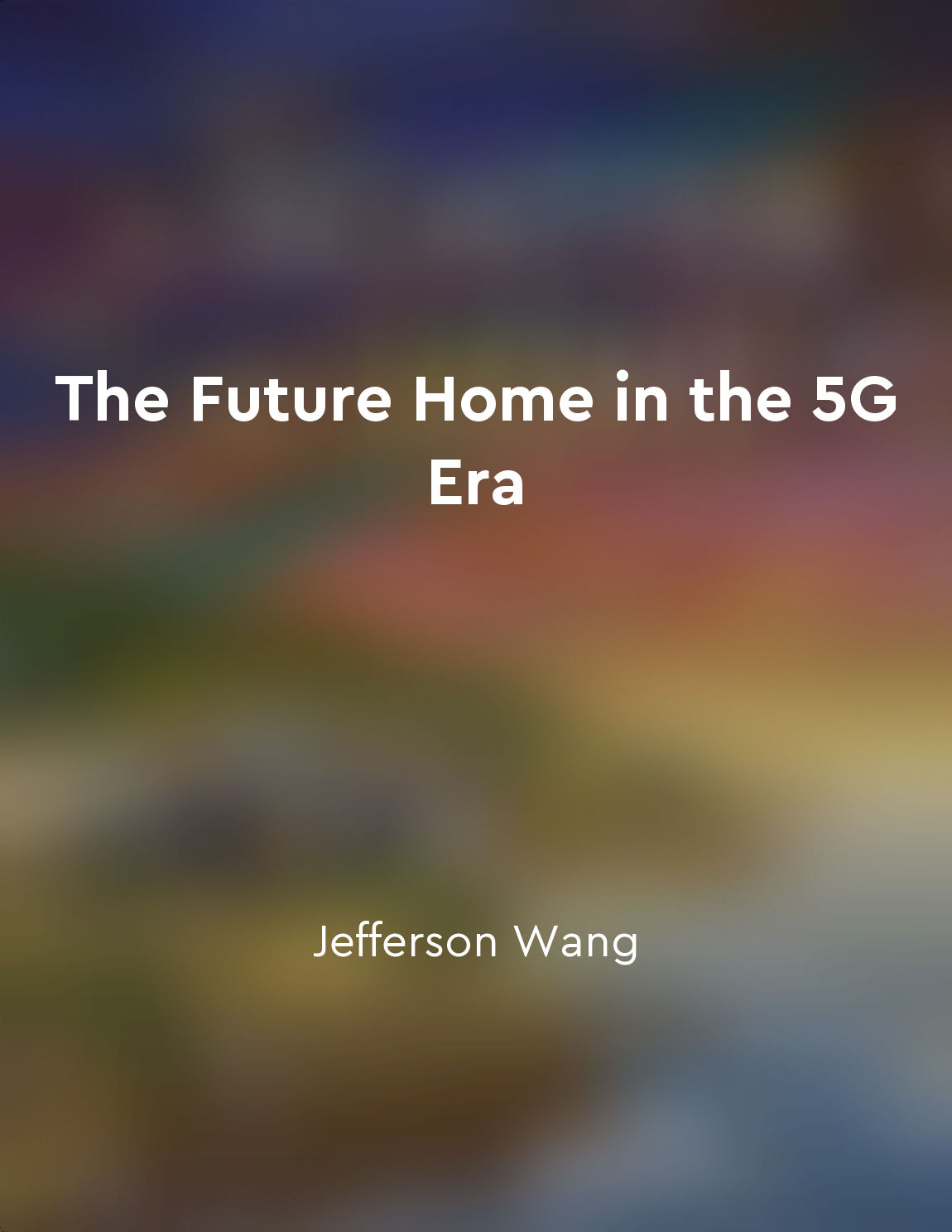Personalization is the future of smart home technology from "summary" of The Future Home in the 5G Era by Jefferson Wang,George Nazi,Boris Maurer,Amol Phadke
The future of smart home technology lies in personalization. With advancements in artificial intelligence and machine learning, smart devices are becoming more intuitive and responsive to individual preferences. This shift towards personalization is driven by the desire to create a seamless and tailored user experience within the home. By analyzing data from various sensors and devices, smart homes can anticipate the needs and preferences of their occupants. For example, a smart thermostat can learn the temperature settings that a homeowner prefers at different times of the day, adjusting automatically without the need for manual input. This level of customization not only enhances comfort but also improves energy efficiency, ultimately saving time and money. Personalization in smart home technology extends beyond convenience to encompass safety and security as well. Smart cameras and sensors can detect patterns of behavior and identify anomalies, alerting homeowners to potential risks. For instance, a smart doorbell can recognize familiar faces and alert the homeowner if an unfamiliar person approaches the door. This proactive approach to security provides peace of mind and enhances overall home safety. Furthermore, personalization enables smart home devices to integrate seamlessly with each other, creating a cohesive ecosystem that enhances functionality. For example, a smart speaker can communicate with other devices in the home, such as lights, thermostats, and locks, to create personalized routines based on individual preferences. This interconnectedness simplifies daily tasks and creates a more efficient living environment. As smart home technology continues to evolve, the focus on personalization will only intensify. By tailoring the user experience to individual preferences and behaviors, smart homes can enhance comfort, convenience, safety, and efficiency. The future of smart home technology is personalized, reflecting a shift towards a more intuitive and responsive living environment.Similar Posts
Quantum computing will transform data processing
Quantum computing is not just a faster version of the computers we use today. It represents a fundamental shift in the way we p...
Regularly updating software can prevent vulnerabilities
Updating software regularly is a crucial practice in the world of cybersecurity. By keeping your software up to date, you can e...

Digital immortality through mind uploading
The idea of digital immortality through mind uploading is based on the belief that our consciousness, memories, and personality...

The Internet of Things will transform how we interact with our homes
The home of the future will be a connected and intelligent space, where everyday objects are equipped with sensors and connecte...
Collaborating with industry partners can enhance cybersecurity efforts
When it comes to cybersecurity, collaboration with industry partners can provide a significant advantage in enhancing overall s...
